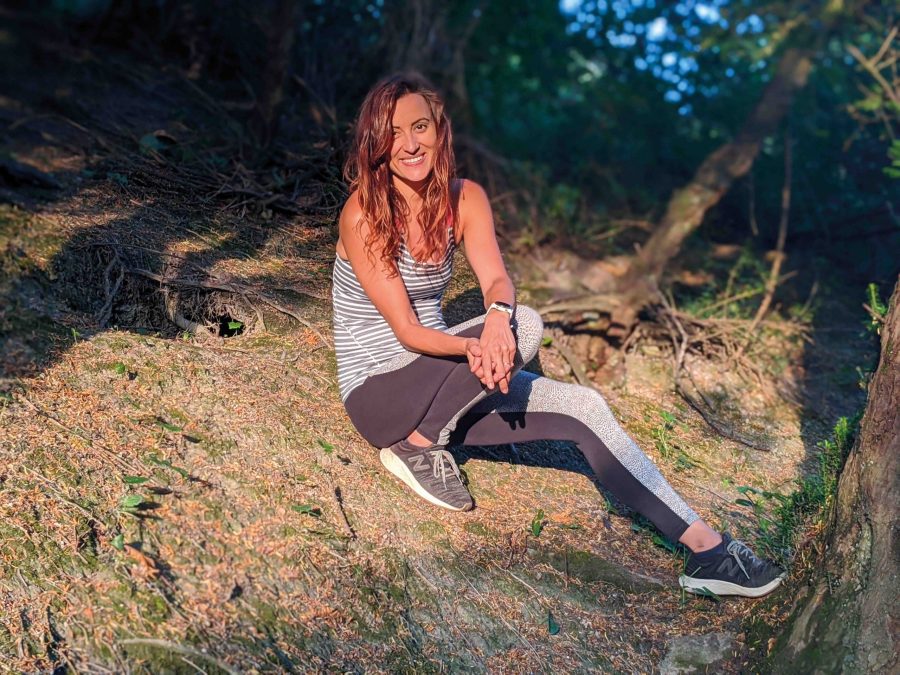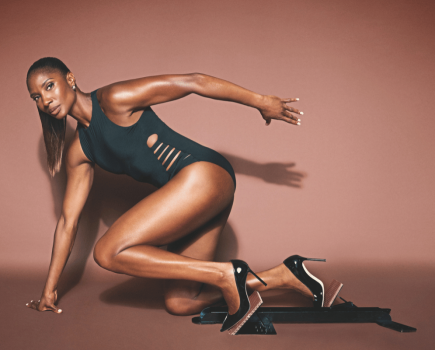Smartwatch sales have boomed in recent years, but is the ever-increasing need to count, measure and store fitness activities on our watches really doing anyone any good?
By Kim Willis
If your new year always starts with a fitness regime, you’re not alone. Last year, 23 million Brits resolved to be healthier and happier*. But if a fitness tracker was on your Christmas wish list, should you be asking yourself if ‘healthier and happier’ can be synonymous with tracking your every step?
Garmin, Strava and Fitbit smartwatch sales have boomed in recent years, with millions dedicated to logging every run, hike, swim and cycle. While many relish the motivating effect of their fitness watches, knowing if they made it to the gym or made it to the sofa, recording every aspect of physical activity could be at the detriment of their wellbeing, as positive psychology and wellbeing consultant Dr Lorna Fenwick McLaren explains:
‘We have become dependent on quantifying who we are. There’s a constant and increasing need to measure, record, track and display ourselves, particularly when it comes to our physical health.
‘Fitness watches and trackers encourage us to post results of our workouts and compete with friends or strangers, so a run is no longer just a run, it is a race. If we forgo the joy of movement for the sake of movement, we lose sight of the less tangible benefits of our activities.
‘Being outside is so good for our spiritual and physical wellbeing, but if we’re more concerned with our pace, distance and how it will look when we post the results on social media, we risk feeling anxious, stressed and tense, which defeats the intrinsic value of exercise and being in nature.’

Kim on holiday, walking the Quiraing Loop. After Kim’s smartwatch told her she was sedentary, she became hooked on reaching 10,000 steps a day.
Keeping score with fitness watches
Kim Willis, 39, a writer from Wiltshire, logs every detail of her day into various health and fitness apps. ‘My husband, Gaz, bought me a Garmin smartwatch for Christmas 2019,’ says Kim. ‘At first, I didn’t see the benefit but after a few weeks gathering data, it told me I was sedentary. That word was so triggering, I started trying to impress my smartwatch.’
Within weeks, Kim was hooked on achieving at least 10,000 steps a day. She used Garmin to track her runs, walks and workouts. Other apps tracked weight, calories and sleep. ‘There’s not much my phone doesn’t know about me now,’ Kim says.
‘When my smartwatch told me my VO2 max reached “superior” I was so happy, even though I didn’t understand what VO2 max was!’ So, does she have a problem or a mini motivator strapped to her wrist?
‘I have now walked 10,000 steps a day for more than 600 days in a row,’ she says. ‘I never would have done that if I hadn’t got a smartwatch. I do post brags on social media and I admit I want people to praise my achievement. But, I have also enjoyed every walk.
‘I’ve witnessed sunrises, frost, cute dogs and wild deer. On holiday, I walked incredible routes, such as the Quiraing Loop in Scotland. Holidays used to consist of cocktails and hangovers. I’m grateful my smartwatch turned me into someone who hikes on holiday.’ But Kim confesses there are times her behaviour looks worrying.
‘Sometimes, I pace around the kitchen table to ensure I keep my tally of steps going. I got food poisoning on holiday last summer. I wanted to lie in bed all day throwing up, but I forced myself to stumble outside for a walk.
‘Another time, I was distressed because I’d forgotten to press start on my watch and my husband had to remind me that I didn’t need to tell my watch I was exercising because “the body keeps the score”. However, I felt disappointed that I’d miss out on some statistics in my weekly fitness round-up report.’

Kim is grateful that her smartwatch has meant she’s seen more sunrises and nature than ever before.
Focusing on enjoyment over tracking
By focusing too heavily on stats, people can forget the real reason they’re not slumped in front of the TV. ‘It would be a shame to miss the magic and awe of being outside,’ Dr McLaren says. ‘Instead of feeling like you have “failed” if you don’t hit a target, focus on the less trackable but more vital benefits of exercise and fresh air.’
Realising her smartwatch might be encouraging Kim to focus on data over nature, she set out to walk “naked”. ‘I wanted to prove I was not addicted to quantifying my exercise. So, I intentionally went for a walk without my watch,’ Kim says. ‘While it was lovely to feel free, I couldn’t help feeling I had failed to officially count those steps.’
Dr McLaren does not disagree, suggesting that if it makes you anxious to exercise without your smartwatch it defeats the purpose. Fitness trackers can get you to where you want to be. But you need to ensure that once you are there, you enjoy yourself.
‘Use your smartwatch carefully and consciously. Be wary of allowing your device to dictate how you feel and behave,’ Dr McLaren suggests. ‘Combining the digital experience with a more reflective, mindful method of capturing your progress, such as taking photos or journaling, helps ensure you absorb the beauty around you. Rest is as important as movement and, most importantly, be kind to yourself. When you are outside, in nature, there’s no such thing as failure.’








